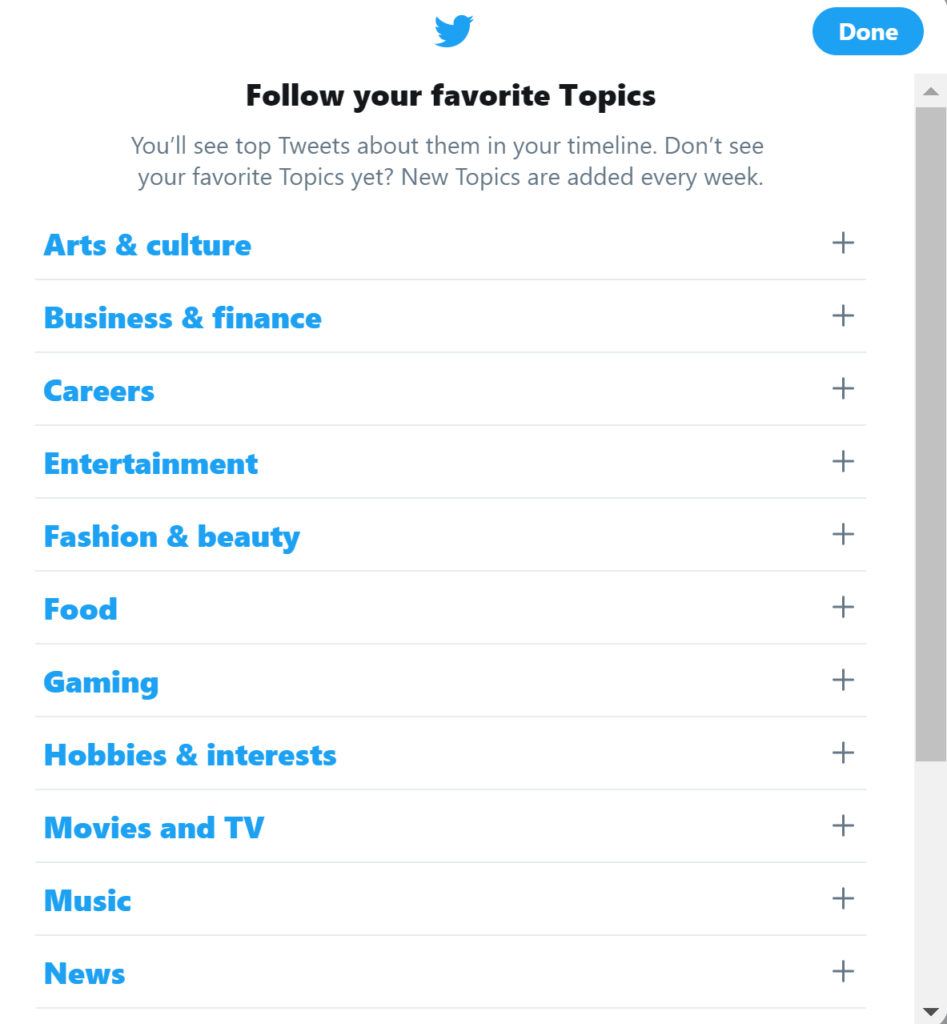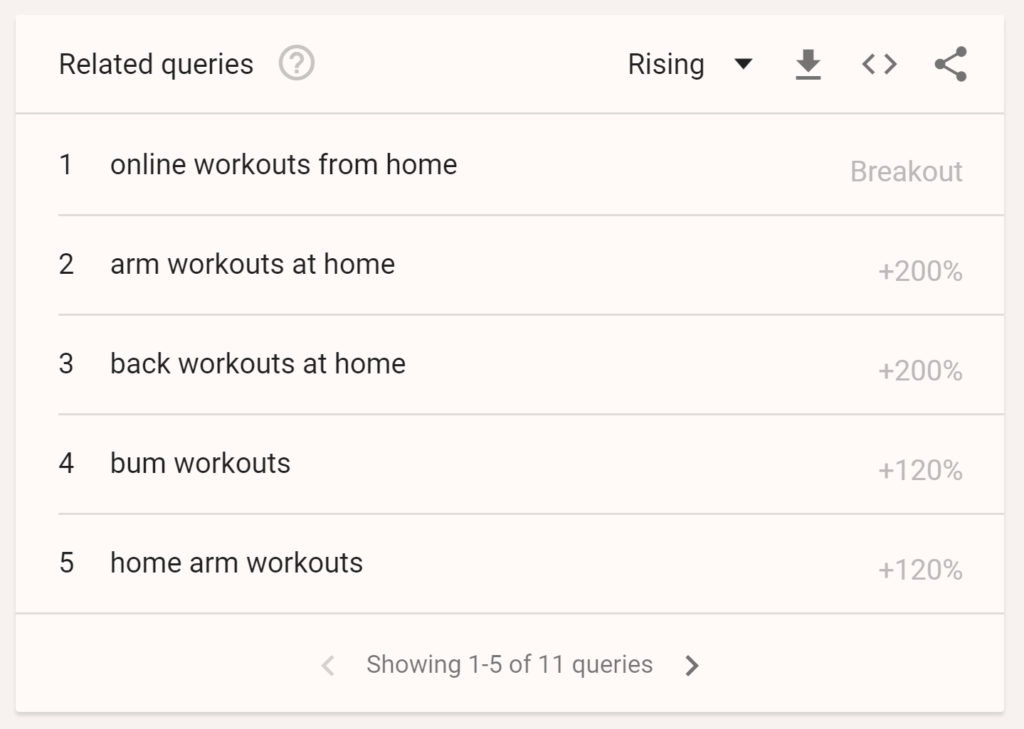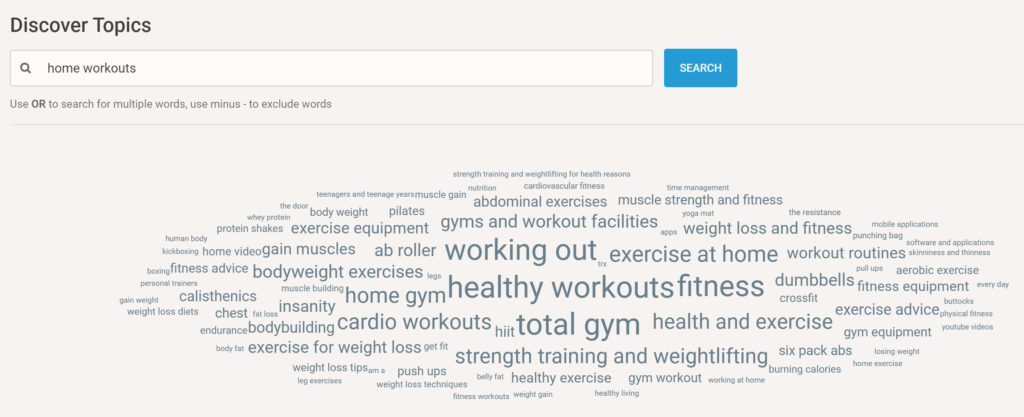News agenda
The news agenda often has an impact on future content trends and is therefore great for spotting upcoming themes. If we take recent times, for example, a health pandemic perpetuating the news has led to an increase in knock-on effect topics such as mental health, working remotely and home exercising. Using these insights, it’s possible to have an educated inkling of what people would like to read about next to guide your strategy in the right direction.
Social media
The first step in researching and finding topic ideas through social media is joining platforms and following relevant people and businesses. As many topics are broken down and discussed on social media first, you should be active on them. As it can become overwhelming at times, I advise utilising a management tool such as Hootsuite in which you can curate different feeds and organise to suit your needs.
Social media can also be used like Google Trends as some of the most prominent platforms have trending sections. My personal favourite is Twitter as I’m able to follow topics and find out what people are saying in real-time. However, the preferred social channels of your audience should be prioritised.

Conducting social media research and understanding the conversations of my client’s audience allows me to create fulfilling content as early as possible.
Google Trends
Aggregating Google search, news and YouTube, Trends gives you a 360 view on what is trending on the web – assisting you with brand new article topics. It’s free to use and provides you with interest patterns over time, geographical breakdowns and related queries, which allow for further context and understanding of search intent. Let’s look at ‘home workouts’, for example:

Having seen an increase in people turning to home workouts during the lockdown, one of our leisure clients wanted to gain insight into the specifics of which home workout content people were seeking. While Keyword Planner updates monthly, Google Trends helped to identify which workouts had increased as of very recently, in line with the pandemic.
From the above, we knew to create content around arm and back exercises as it would suit the needs of those interested in home workouts.
As well as searching for specific terms, the Google Trends homepage also provides recently trending searches and their uplift on a global scale.
Quora and Reddit
Quora will supply you with the questions people want answered, while Reddit shows the topics people are talking about. I think of them as real-time ‘Answer the Public’ tools with additional insights such as the popularity of the query, responses, and related asks. All of which should assist in producing new and meaningful content to satisfy searchers.
To get the best out of these boards, join communities and engage with users. It’s a great place for researching and gaining understanding.
BuzzSumo
The ‘Discover’ section of BuzzSumo is great in many ways. Similar to Google Trends, the ‘Trending’ page provides trending topics but from trusted publications as opposed to search.
‘Discover Topics’ goes a step further by creating a word cloud based on a topic of your choice using those publications. In other words, the word cloud is reflective of the amount of content that is being published in your area of interest.

Cross-referencing breakout topics in Google Trends with your BuzzSumo content research identifies blind spots. For example, Google Trends revealed arms and back home workouts are of public interest, but this demand is not being met looking at the quantity of content being created; this makes for a valuable article opportunity.
If in your case it does appear on the word cloud, clicking through will allow you to look into further topic insights such as the number of articles published and engagements over time, example content and their engagements, related keywords and questions from boards such as Quora and Reddit.
What are your tips for article research and creating novel content? Share your additional suggestions in the comment section below.

Richard Baxter
Love your line of thinking Carla. I’m 100% behind the importance of watching / listening and reading the news to spot emerging trends – I’ve actually become a bit of a fan of BBC World Service, lots of programs on that channel are really in-depth and pretty cutting edge too. Great example of the need to keep your ear to the ground: when the “ok boomer” phrase started to appear, the domain name was available in the UK – I resisted the temptation to register *yet another* domain; regardless of thinking it would have made a good tshirt affiliate site (for redbubble). Long story short: someone else grabbed it while I was making up my mind. But I never would have discovered the opportunity if I wasn’t interested, generally, in emerging pop culture memes. Good content people have great general knowledge and awareness of current affairs in my humble opinion. Thanks!!